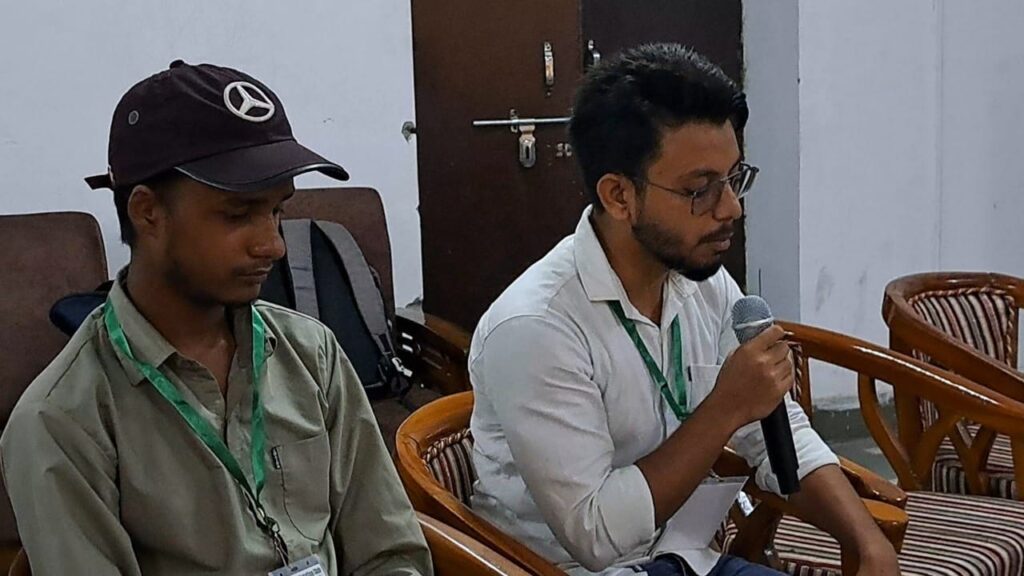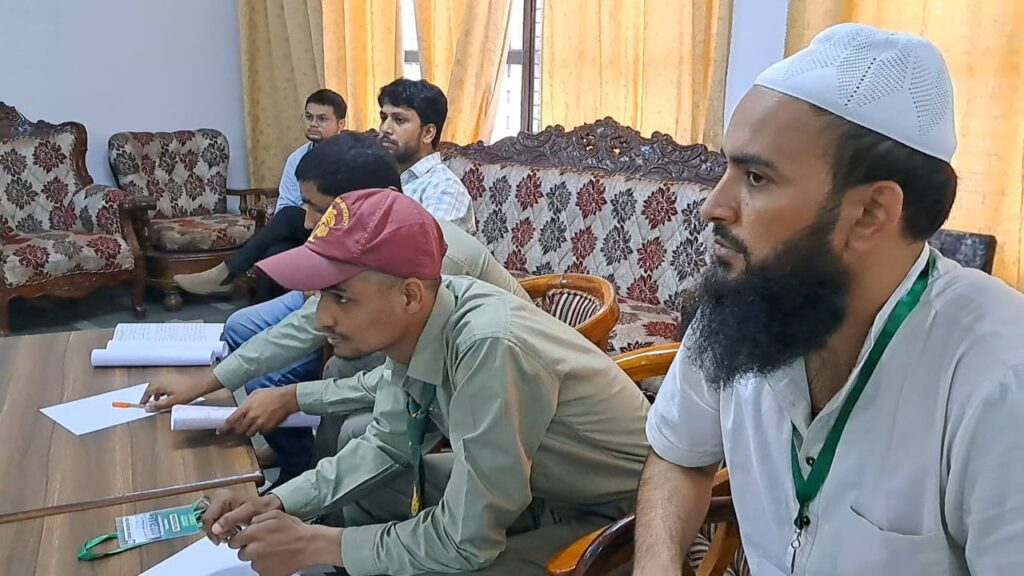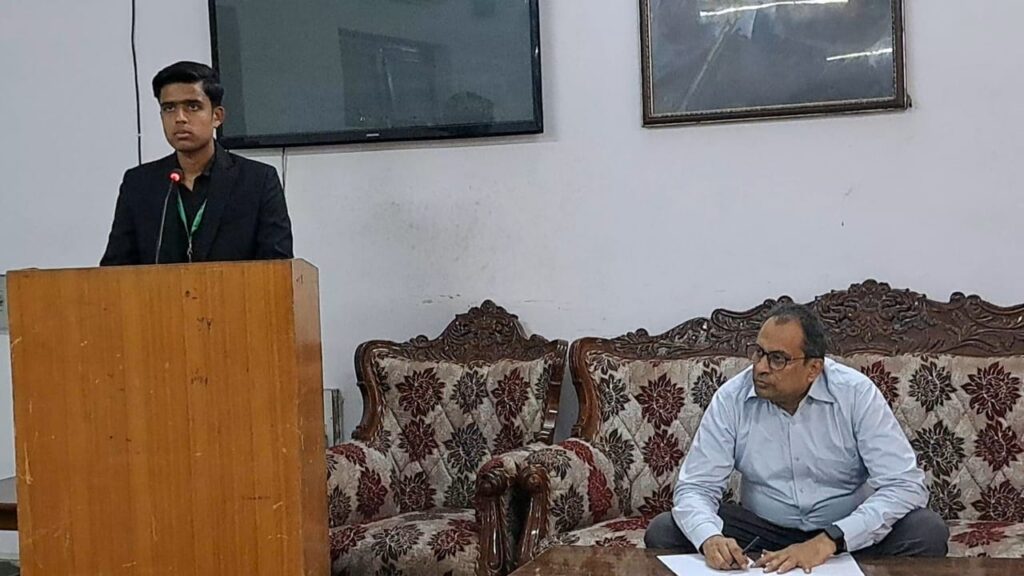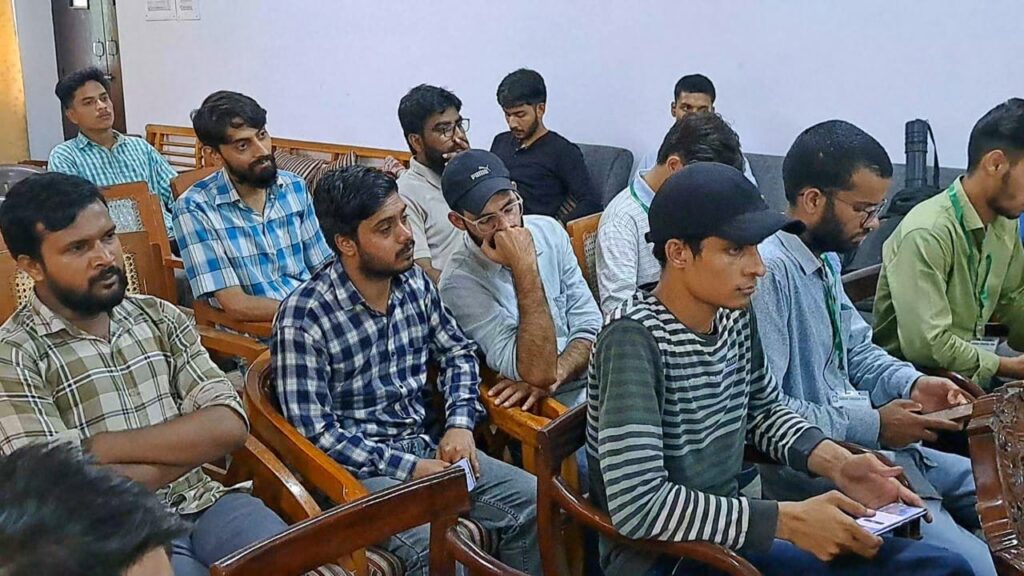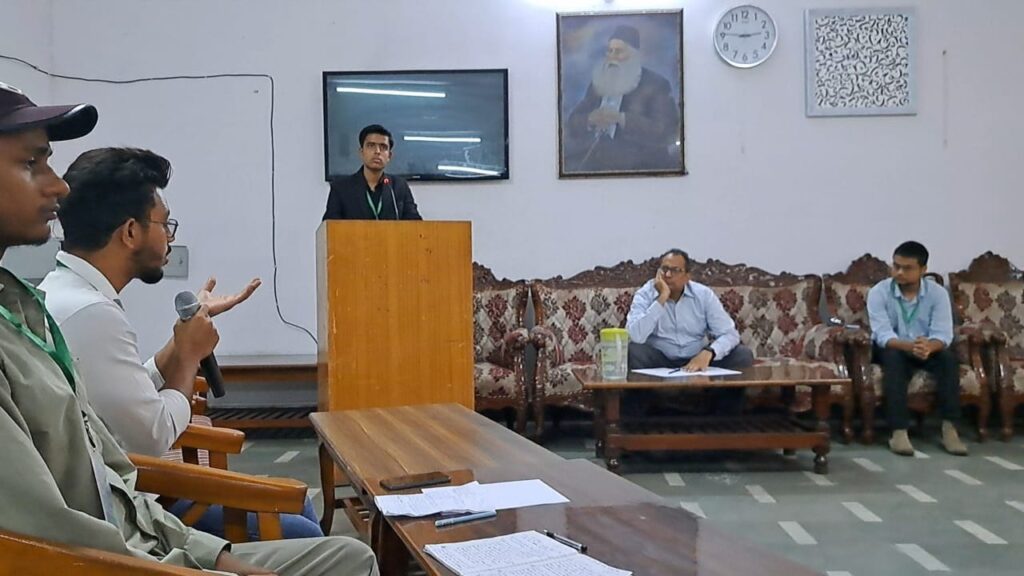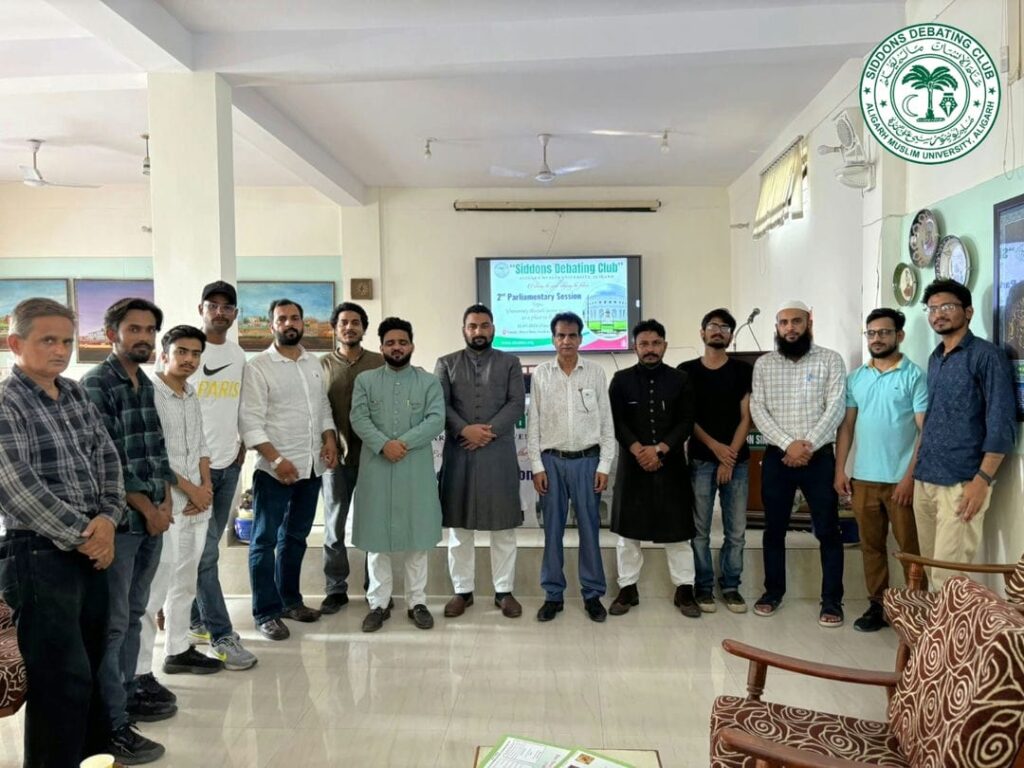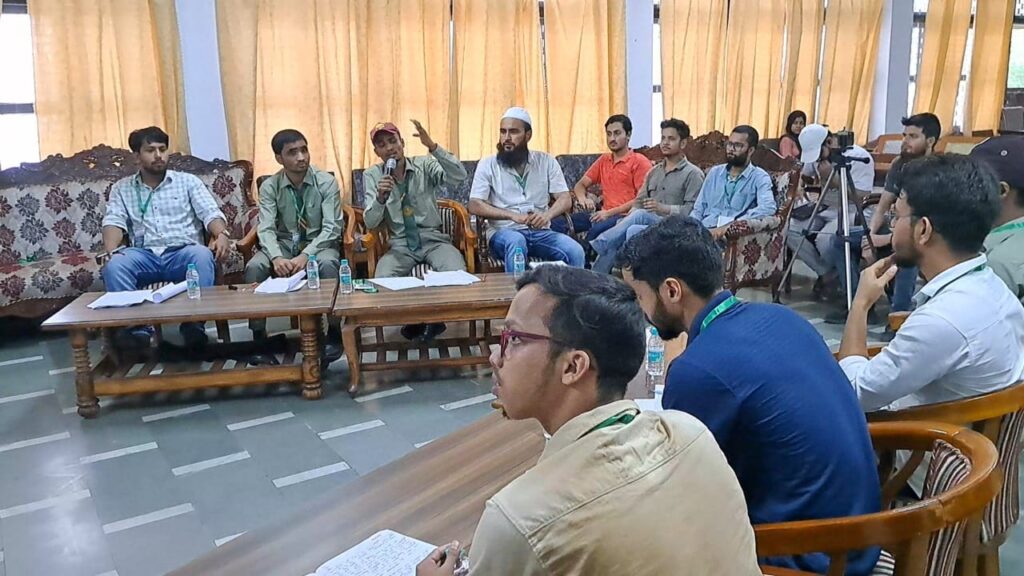
On 22 August 2024, The Siddons Debating Club hosted the continuation of a highly engaging and intellectually stimulating 3rd Parliamentary Session on the motion: “This House Believes That Democratic Representation in University Undermines Academic Meritocracy.” The event, held in the Staff Club at AMU, was a continuation of their previously incomplete parliamentary session organized by the club as a part of Independence Day on 15 August 2024. The event attracted a diverse audience of students and debate enthusiasts all eager to witness the clash of ideas on a topic that strikes at the heart of university governance.
The session was chaired by Prof. Mohammad Sajjad of the Department of History at AMU, as the Speaker of the House. The debate began with the introduction of the motion. Those in favor of the motion argued that while democratic representation in university governance is well-intentioned, it often prioritizes popularity over academic rigor. They expressed concern that giving students and faculty equal weight in decision-making processes could dilute the focus on academic standards. They emphasized the importance of academic meritocracy, which rewards individuals based on their intellectual achievements and contributions to scholarship, to maintain the integrity and quality of education. They warned that allowing democratic processes to influence academic decisions could lead to compromises that ultimately harm the university’s academic mission. Another individual speaking in favor of the proposal mentioned that democratic representation could sometimes result in decisions being influenced by short-term concerns rather than longterm academic objectives. The point was raised regarding the Student Union elections in
Aligarh Muslim University and the Lyngdoh Committee recommendations, the speaker touched upon the question of integrity in democratic practices in AMU, the question was pointed towards the presence of populist ‘lobby’ backed candidates in Student Union elections. One of the speaker highlighted the gender inequality and the prevalent number game that systemically sidelines the women participation in University’s representative democracy. Another speaker contended that students, who might not always fully grasp the complexities of academic management, could advocate for policies that are popular or convenient but harmful to academic excellence. He provided instances where student requests for less challenging coursework or more forgiving grading policies had conflicted
with the principles of meritocracy, leading to a decrease in academic standards.
The speakers against the motion passionately argued that democratic representation is vital to ensure that all voices in the university are heard. He believes that universities should not only focus on academic learning, but also embrace diverse perspectives in decision-making. He thinks that democratic representation promotes inclusive and fair governance, taking into account the needs and concerns of students, faculty, and staff alongside academic priorities. He also emphasized that inclusivity does not diminish meritocracy, but rather ensures that academic policies are fair and reflective of the entire university community. One speaker argued against the motion, emphasizing that democratic representation can actually strengthen academic meritocracy. In context of Aligarh Muslim University, the idea of a university as an institution of holistic socio-political as well as educational development of student was discussed by the participant. The speaker further asserted that meritocracy shouldn’t be narrowly defined as a system that excludes democratic participation but rather as one that thrives on the active engagement of all members of the university.
The debate was marked by lively exchanges, with each side presenting well-reasoned arguments and responding to counterpoints with clarity and conviction. The Speaker of the House praised the organizers for taking the initiative and organizing the event. The Speaker praised the participants for their efforts, acknowledged the small mistakes they made, and mentioned areas for improvement. Finally, he appreciated the participants for taking part in the debate.
In conclusion, the debate emphasized the intricate and multifaceted connection between democratic representation and academic meritocracy. The proponents of the motion raised valid concerns about the potential dangers of reducing academic standards, while the opposing side effectively showed that democratic representation can coexist with, and even improve, a dedication to academic excellence. The event showcased the influence of debate in nurturing critical thinking and addressing challenging issues in a substantial manner.
The Siddons Debating Club once again provided a platform for rigorous intellectual discourse through this debate, leaving the audience with much to ponder about the governance of universities and the values that should guide them.
